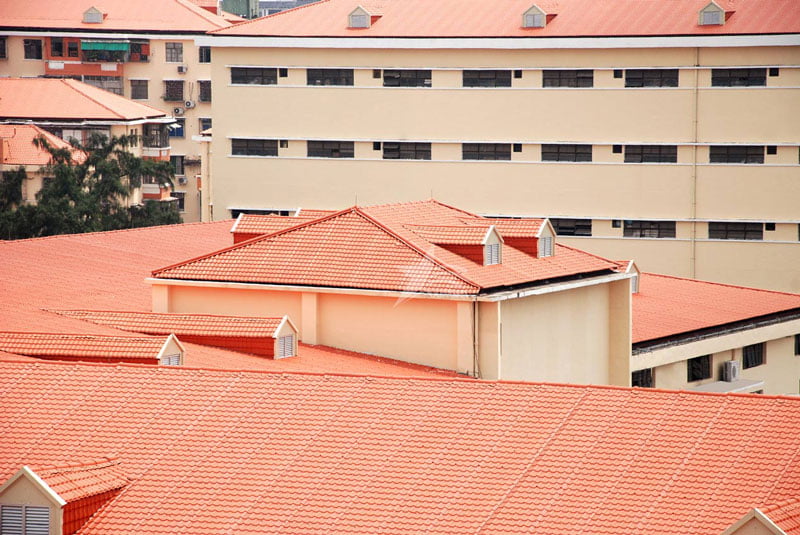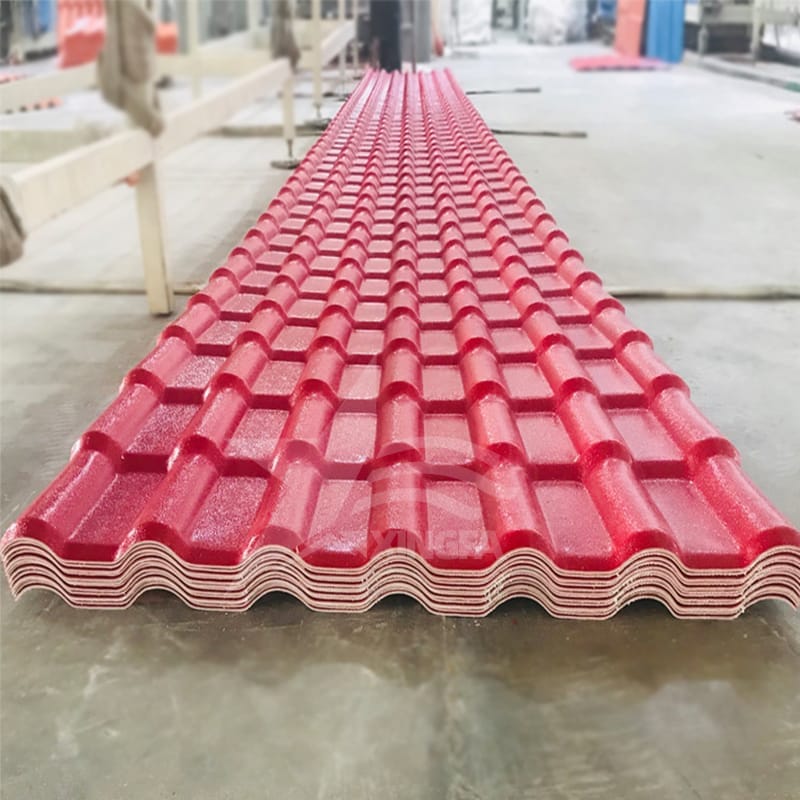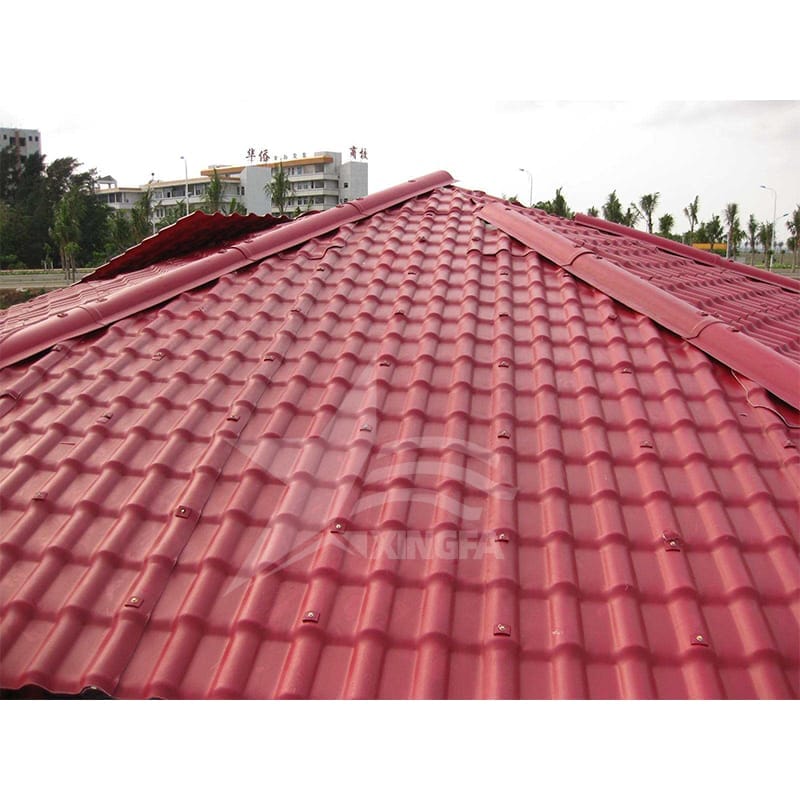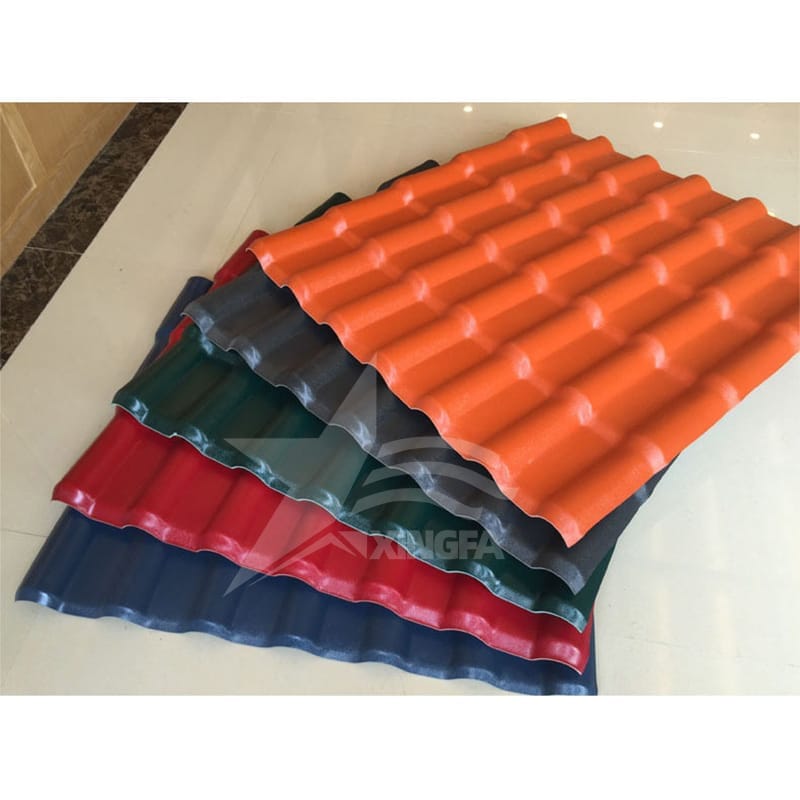PVC tiles, a type of high-quality synthetic resin tile, are made primarily from polyvinyl chloride (PVC). Renowned for their lightweight nature, waterproof capabilities, and corrosion resistance, PVC tiles have become a highly esteemed innovative material in the modern construction industry.
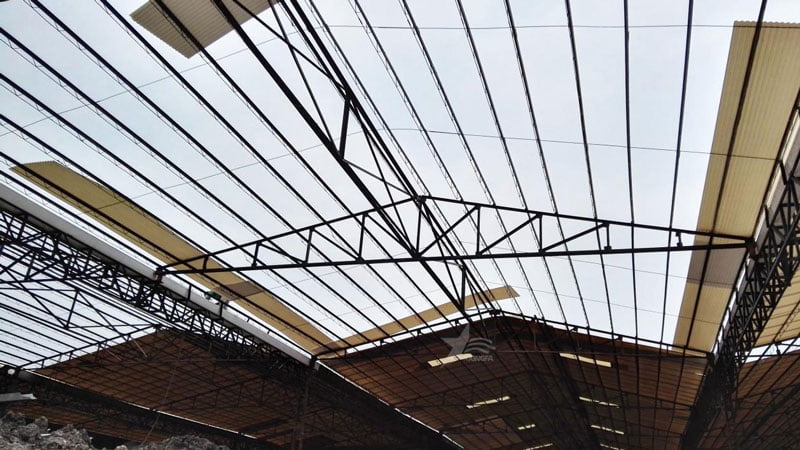
### Lightweight Design
One of the most significant advantages of PVC tiles is their lightweight design. This characteristic reduces the overall load on building structures, which can enhance safety and longevity. Additionally, the lightweight nature of PVC tiles significantly improves construction efficiency. They are easier to handle and install, reducing labor costs and time spent on site. This makes PVC tiles an excellent choice for both new construction projects and renovations.
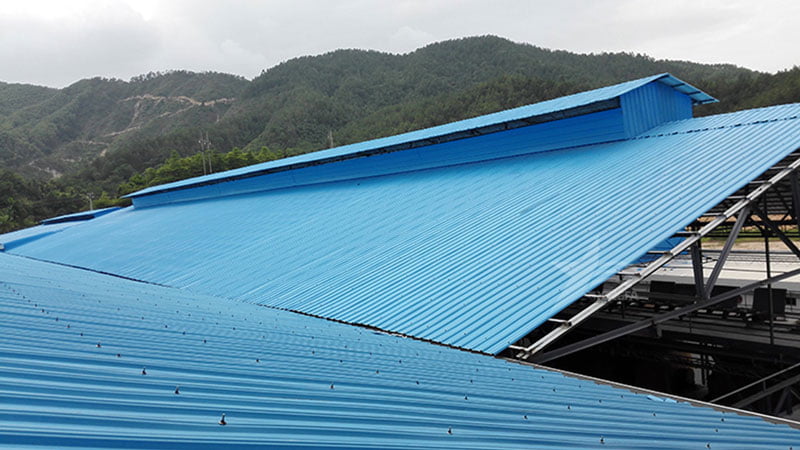
### Superior Waterproofing
PVC tiles are renowned for their exceptional waterproof properties. This makes them an ideal roofing solution, effectively preventing water infiltration and protecting the underlying structure from damage. The robust waterproofing capability of PVC tiles ensures that buildings remain dry and safe, even during heavy rainfall. By preventing water damage, PVC tiles help extend the lifespan of buildings and reduce the need for frequent maintenance and repairs.
### Excellent Corrosion Resistance
Another key benefit of PVC tiles is their outstanding resistance to corrosion. This makes them particularly suitable for harsh environments, such as chemical plants and coastal areas where salt and other corrosive elements are prevalent. PVC tiles provide long-term, stable protection against these harsh conditions, ensuring the structural integrity and aesthetic appeal of buildings over time. Their corrosion resistance also contributes to their low maintenance requirements, further adding to their appeal as a durable roofing material.
### Aesthetic Versatility
PVC tiles come in a wide range of designs and vibrant colors, allowing them to complement various architectural styles. Whether for residential, commercial, or industrial buildings, PVC tiles can enhance the aesthetic appeal while providing robust protection. The versatility in design makes them suitable for diverse applications, from traditional homes to contemporary office buildings, ensuring that there is a PVC tile option for every architectural vision.
### Pioneering Synthetic Resin Tiles
As a leader in synthetic resin tiles, PVC tiles stand out for their superior performance and diverse designs. They bring new energy to the construction industry by offering innovative solutions that meet modern demands for durability, efficiency, and aesthetics. The combination of lightweight design, waterproofing, and corrosion resistance makes PVC tiles a preferred choice for many architects and builders.
### Environmental Considerations
In addition to their practical benefits, PVC tiles are also environmentally friendly. Many manufacturers produce PVC tiles using sustainable practices and materials. PVC tiles are often recyclable, reducing their environmental impact at the end of their life cycle. By choosing PVC tiles, builders and homeowners can contribute to more sustainable construction practices.
### Cost-Effectiveness
PVC tiles offer excellent value for money. Their durability and low maintenance requirements mean that the long-term costs of owning a building with PVC tiles are lower compared to other materials. The initial investment is often offset by the reduced need for repairs and replacements. Moreover, their lightweight nature can reduce transportation costs and simplify installation, further enhancing their cost-effectiveness.
### Fire Resistance
Many PVC tiles are designed to be fire-resistant, adding an extra layer of safety to buildings. This fire resistance is an essential feature for any roofing material, especially in areas prone to wildfires or for buildings that require stringent safety standards. The addition of fire-resistant properties ensures that PVC tiles not only protect against environmental factors but also enhance the overall safety of the structure.
### Thermal Insulation
PVC tiles also offer good thermal insulation properties, helping to maintain a comfortable indoor temperature. This can lead to energy savings by reducing the need for heating and cooling. The insulating properties of PVC tiles make them an excellent choice for buildings in various climates, providing comfort and efficiency year-round.
### Easy Maintenance
Maintaining PVC tiles is straightforward. Their smooth surface makes them easy to clean, and they do not require special treatments or frequent upkeep. This ease of maintenance is a significant advantage for building owners, as it reduces the time and cost associated with keeping the roof in good condition.
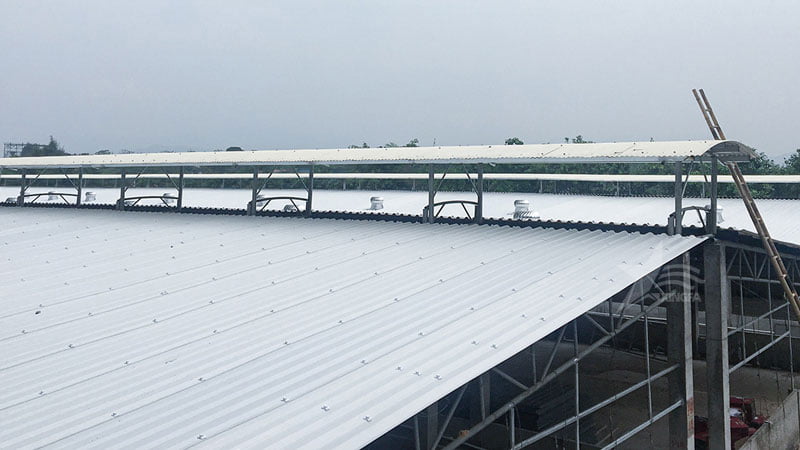
### Conclusion
PVC tiles, with their lightweight, robust performance, and aesthetic versatility, are an ideal choice for modern architecture. Their superior waterproofing and corrosion resistance make them suitable for a wide range of environments, from residential homes to industrial complexes. As pioneers in synthetic resin tiles, PVC tiles continue to lead the way in providing innovative and sustainable roofing solutions. By choosing PVC tiles, builders and homeowners can enjoy a durable, cost-effective, and environmentally friendly roofing option that enhances the beauty and functionality of their buildings.

